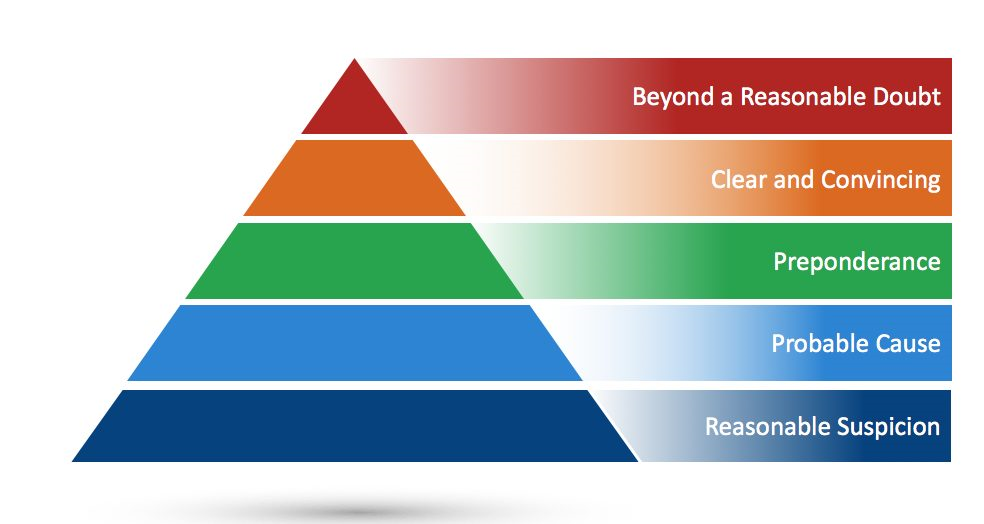Introduction
In the vast landscape of human decision-making, mental models serve as indispensable tools that shape our understanding and guide our actions. Among these models, the Burdens of Proof stands out as a compelling concept deeply rooted in human psychology. It highlights the significance of evidence and rationality in our decision-making processes. In this blog post, we will explore the Burdens of Proof model, its relevance in decision-making, and its prevalence in our daily lives.
Understanding the Burdens of Proof
The Burdens of Proof refers to the obligation to provide sufficient evidence or reasoning to support a claim or proposition. It emphasizes that the burden lies with the person making the claim, rather than with others to disprove it. This concept is particularly relevant in decision-making as it emphasizes the importance of rational justification and critical thinking.
Human psychology and the prevalence of Burdens of Proof
The Burdens of Proof model is deeply anchored in human psychology. As social beings, we constantly seek to justify our beliefs and actions, often using the Burdens of Proof as a guiding principle. This mental model arises from the innate human desire for certainty, which can sometimes lead to biased decision-making. Let’s examine three distinct examples that illustrate the occurrence of Burdens of Proof in various contexts.
- Personal life decisions: Imagine an individual contemplating a career change. They might hesitate to pursue their passion due to the burden of proving its viability and success. Fear of judgment and the need for external validation become barriers, hindering personal growth and fulfillment.
- Business scenarios: In the corporate world, Burdens of Proof can manifest in decision-making processes. For instance, an organization might resist adopting innovative technologies or strategies unless they are presented with overwhelming evidence of success. This burden can stifle creativity and prevent businesses from capitalizing on new opportunities.
- Public policy-making: Burdens of Proof can significantly impact public policy decisions. In debates surrounding climate change, for example, the burden is often shifted onto those advocating for action. The demand for irrefutable evidence delays progress, leading to inaction and potential harm to the environment.
The role of biases and psychological underpinnings
Several mental biases contribute to the Burdens of Proof model and influence decision-making. Confirmation bias, for instance, causes individuals to seek and interpret evidence that aligns with their pre-existing beliefs, further reinforcing the burden on opposing views. Anchoring bias also plays a role, as individuals tend to rely on initial information and demand a higher standard of proof to deviate from their original stance.
Additionally, the Dunning-Kruger effect, where individuals overestimate their knowledge and competence, can exacerbate the burden. Those afflicted by this bias may fail to recognize their own lack of expertise, demanding excessive proof from others while being unaware of their own shortcomings.
Strategies to identify and avoid succumbing to Burdens of Proof
To overcome the Burdens of Proof fallacy and make more objective decisions, it is crucial to develop self-awareness and practice critical thinking. Here are some practical strategies to identify and avoid succumbing to this mental trap:
- Recognize personal biases: Reflect on your beliefs and be aware of the biases that may influence your decision-making. Actively seek out and consider opposing viewpoints to counter confirmation bias and reduce the burden on alternative perspectives.
- Promote intellectual humility: Cultivate a sense of intellectual humility by acknowledging the limitations of your knowledge and expertise. Be open to learning from others and consider alternative perspectives without immediately demanding an excessive burden of proof.
- Utilize Bayesian reasoning: Adopt Bayesian reasoning, which involves updating beliefs based on new evidence. Assign prior probabilities to different hypotheses and adjust them as new information becomes available. This approach allows for a more nuanced understanding and minimizes the burden of extreme proof.
- Encourage critical thinking: Foster an environment that values critical thinking and evidence-based decision-making. Engage in constructive debates, encouraging individuals to provide solid reasoning rather than relying solely on burdens of proof.
Conclusion
The Burdens of Proof mental model serves as a valuable lens through which we can examine our decision-making processes. By recognizing its prevalence in personal, business, and public policy contexts, we become aware of the potential pitfalls it presents. Understanding the psychological biases that contribute to this model is key to overcoming them. By implementing strategies such as recognizing biases, promoting intellectual humility, utilizing Bayesian reasoning, and encouraging critical thinking, we can navigate decision-making more effectively and avoid succumbing to the burdens of proof fallacy. By embracing this awareness, we empower ourselves to make more rational, informed decisions that align with our best interests and contribute to our personal and collective growth.
